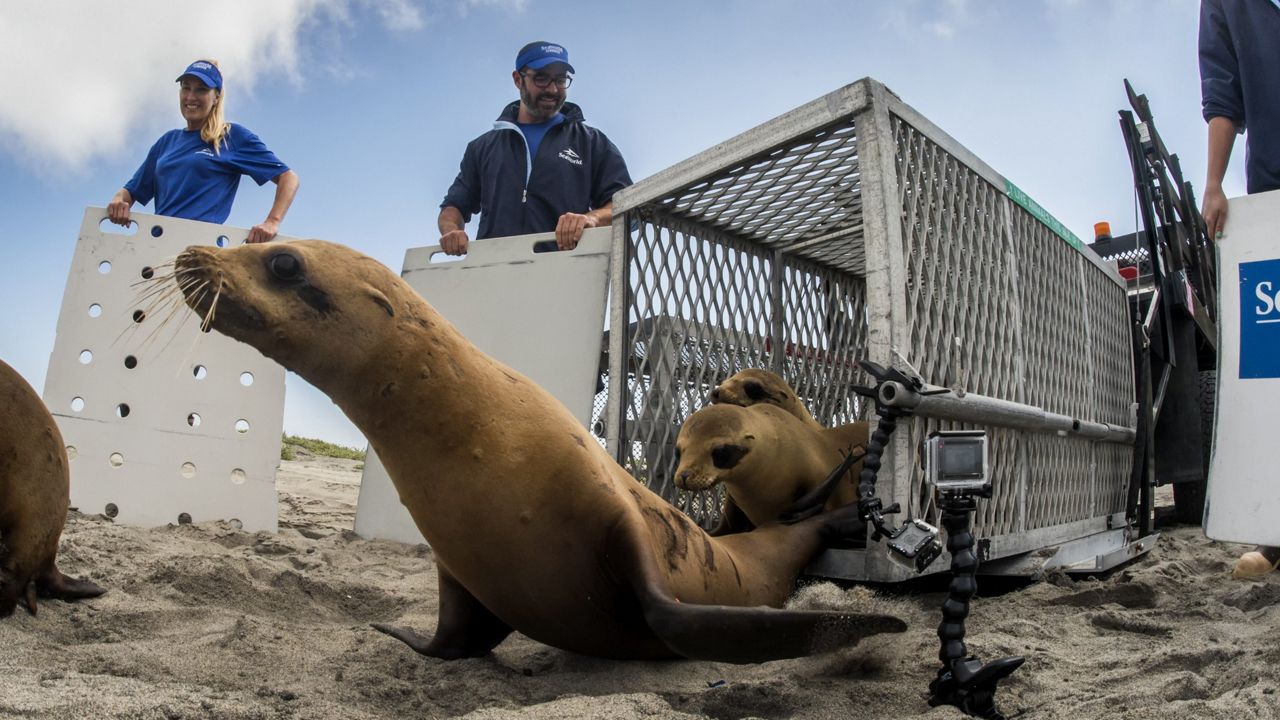SAN ANTONIO — Despite making more than 35,000 rescues in 55 years, scientists at SeaWorld say threats to marine wildlife continue to accelerate.
- SeaWorld has recused more than 35,000 animals
- Animal rescues increasing
- An estimated 1 million species face extinction
SeaWorld says human impact, like plastic pollution, is taking a toll on marine animals. Habitat loss due to pollution, urban development and sea surface temperature changes are the primary concerns impacting marine wildlife. Animals in the sea also face danger from boat strikes and entanglement in marine debris.
SeaWorld’s rescue team is on call 24 hours a day, year round. It partners with several government agencies including the National Oceanic and Atmospheric Administration (NOAA), to rescue and rehabilitate animals. When NOAA or another federal agency deems an animal unreleasable, SeaWorld is one of many facilities nationwide available to provide care from a dedicated team of veterinarians.
"SeaWorld has been a long-standing valuable partner in promoting marine conservation, and rescuing and rehabilitating stranded, entangled or imperiled marine wildlife," said Donna Wieting, director of NOAA Fisheries's office of protected resources.
SeaWorld says an estimated one million species around the world are being driven toward extinction. SeaWorld is developing new tools at its species preservation laboratory in California to help repopulate threatened species. The various species of animals in SeaWorld’s care are providing an abundance of scientific data that helps researchers better diagnose and understand the threats to the health of wildlife.
The number of animal rescues has increased over the years in part because of the vigilance of the public in reporting animals that are in danger. SeaWorld San Antonio is part of the Texas Marine Mammal Stranding Network. The hotline is 800-9MAMMAL (800-962-6625).
You can call the Texas Sea Turtle Stranding and Salvage Network at 361-949-8173 (ext. 226) to report a stranded sea turtle.



